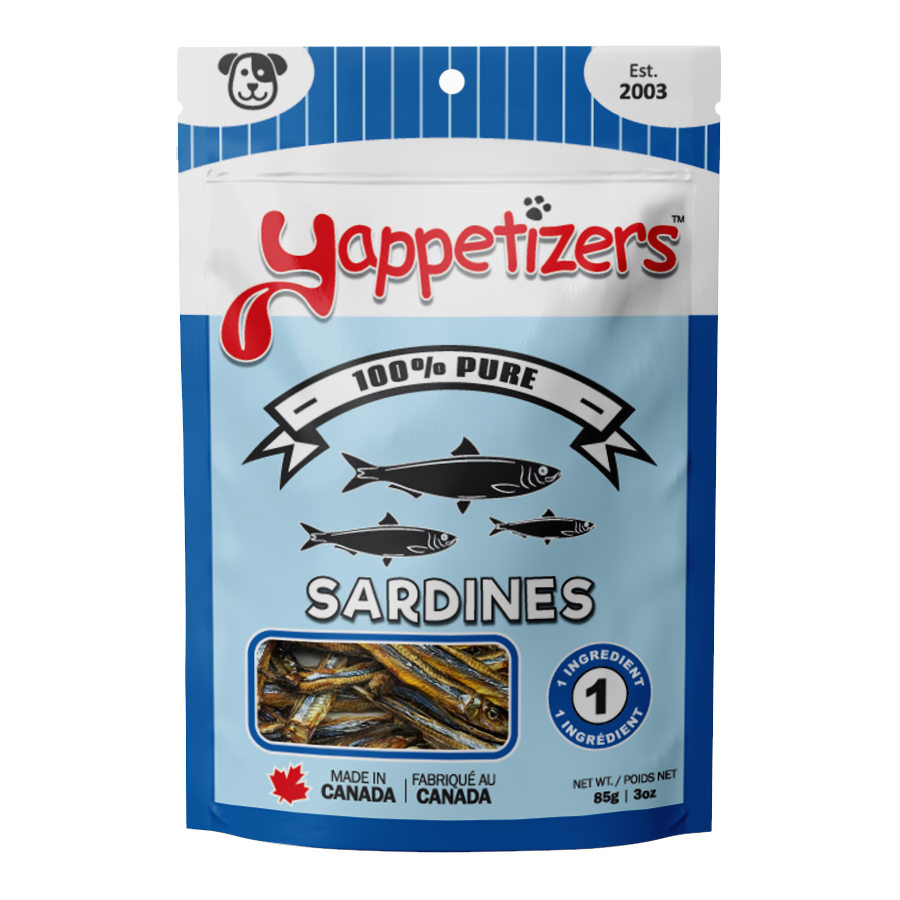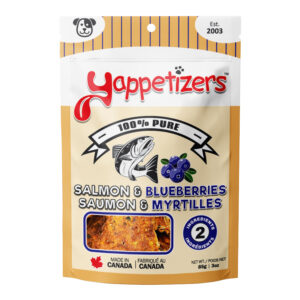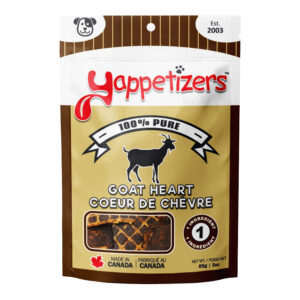Description
The Benefits of Feeding Dehydrated Sardines to Dogs
Dehydrated sardines are a nutritious and delicious treat for dogs. Packed with protein, omega-3 fatty acids, and essential vitamins, they offer numerous health benefits. At Yappetizers, we ensure that our dehydrated sardines are made with one simple ingredient—100% human-grade sardines—air-dried in our CFIA-certified facility in Richmond, BC.
Why Dehydrated Sardines Are Great for Dogs
- High in Omega-3 Fatty Acids – Supports a shiny coat, healthy skin, and joint health.
- Rich in Protein – Helps build strong muscles and supports overall energy.
- Promotes Brain Health – DHA in sardines aids cognitive function and development.
- Natural Source of Vitamins & Minerals – Contains calcium, phosphorus, and vitamin D for bone and immune support.
- Easily Digestible – Ideal for dogs with food sensitivities or allergies.
- Long Shelf Life & No Mess – Unlike fresh or canned fish, dehydrated sardines are convenient, odor-free, and require no refrigeration.
Frequently Asked Questions
Are Dehydrated Sardines Good for Dogs?
Yes! Dehydrated sardines are an excellent addition to your dog’s diet. They provide high-quality protein and essential fatty acids that support skin, coat, brain, and joint health. Plus, they are a natural source of calcium and phosphorus, which promote strong bones and teeth.
Can Sardines Be Dehydrated?
Absolutely! Sardines can be air-dried or freeze-dried to remove moisture while retaining their natural nutrients. Dehydration preserves the fish without the need for additives or preservatives, making it a healthier alternative to canned or raw sardines.
How to Make Dehydrated Sardines for Dogs?
Making dehydrated sardines at home is simple:
- Clean & Prep: Rinse fresh sardines thoroughly.
- Arrange on a Dehydrator Tray: Lay them flat, ensuring they don’t overlap.
- Dehydrate at Low Heat (120–140°F): Let them dry for 12–24 hours until they are fully crisp.
- Store Properly: Keep them in an airtight container in a cool, dry place.
Are Sardines in Water Good for Dogs?
Yes, but they should be unsalted and packed in water without added preservatives. While canned sardines in water are safe, dehydrated sardines are a better option because they lack excess sodium and have a longer shelf life without refrigeration.
Why Choose Yappetizers Dehydrated Sardines?
At Yappetizers, we take pride in offering single-ingredient, human-grade sardine treats that are made in Canada without any additives or preservatives. If you’re looking for a healthy, high-quality treat for your dog, our dehydrated sardines are the perfect choice!
Conclusion
Sardines can be a healthy and beneficial addition to your dog’s diet, offering essential nutrients and supporting overall well-being. However, it’s crucial to feed sardines in moderation and consult. Be sure to also check out some of our other great one ingredient treats.






Reviews
There are no reviews yet.